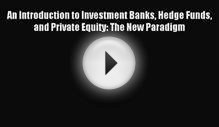
 Edward MaurerMost of my friends are going into banking. Maybe not because pitch books and road programs are their thing, naturally, nonetheless it opens countless doors. 100 time work days, camaraderie in the form of all-nighters modifying PowerPoint slides and sharing Seamless meals, and achieving no skin in online game never truly sounded appealing to myself, but i assume to each his own, correct?
Edward MaurerMost of my friends are going into banking. Maybe not because pitch books and road programs are their thing, naturally, nonetheless it opens countless doors. 100 time work days, camaraderie in the form of all-nighters modifying PowerPoint slides and sharing Seamless meals, and achieving no skin in online game never truly sounded appealing to myself, but i assume to each his own, correct?
Of course, it turns out i am perhaps not the only person who is maybe not very excited about the concept of taking care of the sell-side, and also this includes my friends fortunate to obtain return offers or full time gigs at their particular banks/research houses. But as most of them will inform me, "beginning on sell part may be the quickest path to the buy part, and I also'll be a hedge fund rockstar in only couple of years!"
Wait another... wouldn't the quickest approach to the buy part be... starting from the purchase part? Or was I lacking some thing?
Happily, I becamen't. If you're certain you wish to be spending for an income, going directly to the buy part is the best job move you can make. With recruiting all but more than, i am pleased to be starting my profession aided by the job title "analysis Analyst" and doing something I'm really enthusiastic about performing.
Anyone contemplating making a lifetime career regarding investing should be attempting to make this leap. The debate that banking or sell-side analysis allows you to a far better investment analyst is bullshit. Being an investment analyst allows you to a far better financial investment analyst. But if you are planning on interviewing when it comes to buy-side immediately, there's some things you have to be prepared for. I'll you will need to emphasize some of those below.
1. Have two stocks to pitch. And know every little thing there's to know about all of them.
If this appears hard, you're not in fact as interested in investing while you thought you're. If it appears fun, continue reading. You should be in a position to clarify exactly what these firms do in very easy terms (should they do not already know them), have the ability to decorate the picture of the reason why industry is split regarding stock, identify the catalysts inside short and longterm which make this an excellent business that may eventually realize its intrinsic price, and supply some intelligent thoughts on valuation and just why the stock may be worth investing in today. I would worry illustrating the long-term growth profile regarding the company over other things, and then make yes you highlight exactly what the drivers tend to be of this growth. Experts wish to know you examine all aspects of an organization, so mentioning administration, industry economics, and company-specific competitive benefits are important. On valuation, you don't have to be a complete wizard you should be aware the typical industry multiples, show where organization is undervalued relative to competitors, and also some insights into the way the company manages its money flows assuming there is a shareholder-friendly focus originating from administration.
Obviously having one stock to pitch is often crucial, but we strongly suggest two. In a standard superday you will likely be talking-to a number of experts independently, and pitching them all on the same thing isn't a poor thing, but once you understand one business is some thing everyone can do. In the event that you combine it up, it really is that much better. You're most likely maybe not going to be requested a lot more than two ideas in virtually any meeting, therefore understanding three or four is probably not as beneficial as the jump from a single to two.
2. Have actually a reasonable (and legitimate) explanation for why you are passionate about trading.
Most of the decision-making around who to hire coming straight out of undergrad generally seems to come just from who actually wishes it the essential. Usually, the easy "walk myself using your application" question gets replaced in buy-side interviews for a slightly different concern, "tell myself the reason why you're right here.", The answer actually too different since in any event you are trying to set down a narrative, however, if you can't aim especially to your experiences in past times (both on / off your resume) that show why you're a good fit for an investment firm right away, it really is not likely planning to exercise. That's where having individual investing experience is available in handy, as you're able to generally suggest that (but be ready to share with you your investments, see no. 1), or being section of some investing team are equally as good whether or not it's maybe not bullshit. Regardless, you'll want to come across as someone who's entirely okay with sitting at a desk doing directed study and smashing 10-Ks for per year or two, so conveying a powerful interest is clearly important.
3. Expect you'll take lower payment in the beginning. Trust me, it's warranted by much better hours and over-justified by a much greater ceiling as quickly as a few years away.
Even if you believe you are better than Warren Buffet, you are in your very early 20s and have nown't proven yourself to anybody yet, therefore cannot anticipate anymore than you'd be getting had you labored on the sell part. In reality, it would likely suck nevertheless should most likely expect less. A number of my provides had been pretty bare. Also among respected corporations 70k base with 10k signing and 10-15% incentives for first year are pretty standard. And for someone just starting, that will be plenty. Many locations can pay less, some places may pay even more, but it is maybe not regarding your very first year's pay. In addition significant is exactly what your roof looks like and just how quickly you are likely to get experience and hopefully progress the ladder to a position with an increase of responsibility. Though it's much easier to make 150k in 1-2 many years in financial, it is much easier to make 400k (or way, way more) in 4-5 many years at a secured item supervisor or hedge investment.
YOU MIGHT ALSO LIKE












